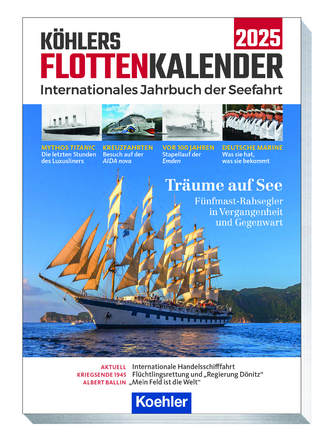
Stability and Motion Control of Ocean Vehicles
Seiten
1969
MIT Press (Verlag)
978-0-262-51006-6 (ISBN)
MIT Press (Verlag)
978-0-262-51006-6 (ISBN)
- Titel ist leider vergriffen;
keine Neuauflage - Artikel merken
On the basis of subject material covered in this work, ocean engineers will be in a position to understand and apply the hydrodynamic principles involved in designing vehicles and systems, determine how vehicles or systems respond to the environment, and also evaluate whether such vehicles can be expected to operate properly in the environment.
The initial instruction, development, and organization of a course in this subject is offered through the Department of Naval Architecture and Marine Engineering as part of its Ocean Engineering Program at M.I.T., one of the few institutions carrying this curriculum.The motion stability and control of ocean vehicles and the response of these vehicles to the excitation of the environment in many instance determine the success or failure of some vehicles in accomplishing the intended mission.On the basis of subject material covered in this work, ocean engineers, whether involved in the design and operation of vehicles that house sensitive instrumentation for oceanographic research or of an offshore floating oil drilling rig for exploitation of the ocean bottom, will be in a position to understand and apply the hydrodynamic principles involved in designing vehicles and systems, determine how vehicles or systems respond to the environment, and also evaluate whether such vehicles can be expected to operate properly in the environment.The text is organized so as to familiarize the student with the hydrodynamic principles involved and with the methods of handling engineering problems in the area. Application of this knowledge extends to a wide variety of ocean vehicle types--these are handled by a "case study" approach of presentation and class discussion. Considerations of purpose, extent, and academic level are taken into account in the text, along with the ability, background, and interests of the students involved. The major portion of this work fulfills the absence of any book satisfactorily covering the subject on motion and stability control of ocean vehicles."The Table of Contents" includes the following topics: General Considerations in Organization of the Subject; Ocean Vehicle Mission and Systems; Basic Hydrodynamic Considerations; Equations of Motion as Derived from Dynamic Analysis; Solutions to the Linearized Equations of Motion; Considerations of Motion Stability; Considerations of Automatic Control; Excitation from the Environment; Vehicle Response to Environmental Excitation; The Hydrodynamic Coefficients; Some Considerations of Non-Linearities; Towing Cables and Towed Vehicles; "Tables for Computing the Equilibrium Configuration of a Flexible Cable in a Uniform Stream," DTMB Report 687 by L. Pode; "Generalized Hydrodynamic Loading Functions for Bare and Faired Cable," NSRDC Report 2424 by G. B. Springston, Jr.; Case Studies of Typical Ocean Vehicles; Appendices: "Lectures on Ship Hydrodynamics--Steering and Maneuverability" by M. A. Abkowitz, and Notes on Axis Transformations.
The initial instruction, development, and organization of a course in this subject is offered through the Department of Naval Architecture and Marine Engineering as part of its Ocean Engineering Program at M.I.T., one of the few institutions carrying this curriculum.The motion stability and control of ocean vehicles and the response of these vehicles to the excitation of the environment in many instance determine the success or failure of some vehicles in accomplishing the intended mission.On the basis of subject material covered in this work, ocean engineers, whether involved in the design and operation of vehicles that house sensitive instrumentation for oceanographic research or of an offshore floating oil drilling rig for exploitation of the ocean bottom, will be in a position to understand and apply the hydrodynamic principles involved in designing vehicles and systems, determine how vehicles or systems respond to the environment, and also evaluate whether such vehicles can be expected to operate properly in the environment.The text is organized so as to familiarize the student with the hydrodynamic principles involved and with the methods of handling engineering problems in the area. Application of this knowledge extends to a wide variety of ocean vehicle types--these are handled by a "case study" approach of presentation and class discussion. Considerations of purpose, extent, and academic level are taken into account in the text, along with the ability, background, and interests of the students involved. The major portion of this work fulfills the absence of any book satisfactorily covering the subject on motion and stability control of ocean vehicles."The Table of Contents" includes the following topics: General Considerations in Organization of the Subject; Ocean Vehicle Mission and Systems; Basic Hydrodynamic Considerations; Equations of Motion as Derived from Dynamic Analysis; Solutions to the Linearized Equations of Motion; Considerations of Motion Stability; Considerations of Automatic Control; Excitation from the Environment; Vehicle Response to Environmental Excitation; The Hydrodynamic Coefficients; Some Considerations of Non-Linearities; Towing Cables and Towed Vehicles; "Tables for Computing the Equilibrium Configuration of a Flexible Cable in a Uniform Stream," DTMB Report 687 by L. Pode; "Generalized Hydrodynamic Loading Functions for Bare and Faired Cable," NSRDC Report 2424 by G. B. Springston, Jr.; Case Studies of Typical Ocean Vehicles; Appendices: "Lectures on Ship Hydrodynamics--Steering and Maneuverability" by M. A. Abkowitz, and Notes on Axis Transformations.
| Erscheint lt. Verlag | 22.7.1969 |
|---|---|
| Zusatzinfo | figs. |
| Verlagsort | Cambridge, Mass. |
| Sprache | englisch |
| Maße | 220 x 290 mm |
| Gewicht | 454 g |
| Themenwelt | Natur / Technik ► Fahrzeuge / Flugzeuge / Schiffe ► Schiffe |
| Technik ► Bauwesen | |
| ISBN-10 | 0-262-51006-5 / 0262510065 |
| ISBN-13 | 978-0-262-51006-6 / 9780262510066 |
| Zustand | Neuware |
| Haben Sie eine Frage zum Produkt? |
Mehr entdecken
aus dem Bereich
aus dem Bereich
internationales Jahrbuch der Seefahrt
Buch | Softcover (2024)
Koehler in Maximilian Verlag GmbH & Co. KG
CHF 35,90


